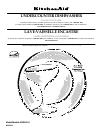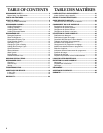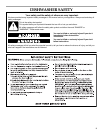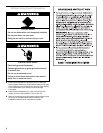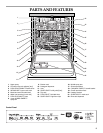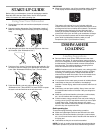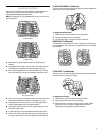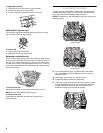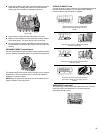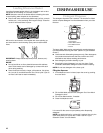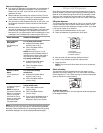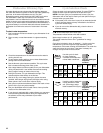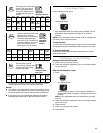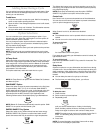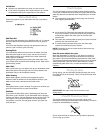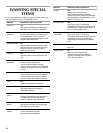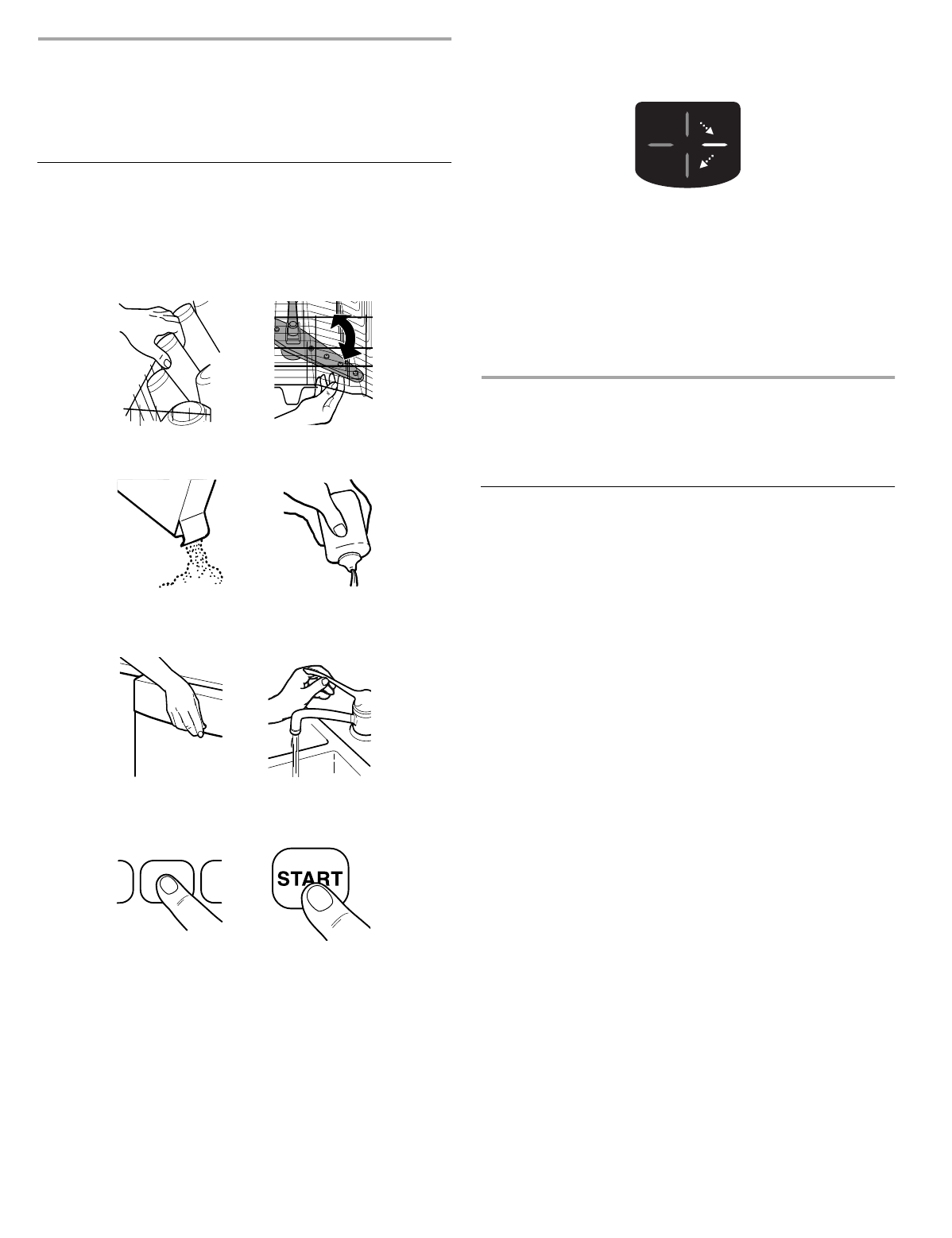
6
START-UP GUIDE
Before using your dishwasher, remove all packaging materials.
Read this entire Use and Care Guide. You will find important
safety information and useful operating tips.
Using Your New Dishwasher
1.
Scrape large food soil and hard items (toothpicks or bones)
from dishes.
2.
Properly load the dishwasher. (See “Dishwasher Loading.”)
Make sure nothing prevents the spray arm(s) from spinning
freely.
3.
Add detergent and check the rinse aid dispenser. Add rinse
aid if needed. (See “Dishwasher Use.”)
4.
Push door firmly closed. The door latches automatically. Run
hot water at the sink nearest your dishwasher until the water
is hot. (See “Dishwasher Efficiency Tips.”) Turn off water.
5.
Press the desired cycle and option selections. (See
“Dishwasher Use.”) Press START. Or press START to repeat
the same cycle and options as the previous cycle.
IMPORTANT:
■
When the cycle starts, you will see a rotating pattern of lights
in the display window indicating that the unit is operating.
This pattern will continue for up to 6 minutes while the
multiple sensors check the incoming water temperature, rinse
aid usage and soil level on dishes and cookware. The sensors
then determine the ideal cycle for your dish load. After
sensing is complete, the display will show the number of
minutes left in the cycle and the cycle countdown will begin.
■
The cycle countdown pauses and the water heating light
glows while the dishwasher heats the water to a set
temperature. (See “Cycle Selection Charts.”)
DISHWASHER
LOADING
Loading Suggestions
■
Remove leftover food, bones, toothpicks and other hard
items from the dishes. To conserve water, energy and save
time it is not necessary to rinse dishes before putting them in
the dishwasher. The wash module removes food particles
from the water. The module contains a chopping device
which will reduce the size of food items.
NOTE:
If hard items such as fruit seeds, nuts, and egg shells
enter the wash module, you might hear chopping, grinding,
crunching, or buzzing sounds. These sounds are normal
when hard items enter the module. Do not let metallic items
(such as pot handle screws) get into the wash module.
Damage can occur.
■
It is important for the water spray to reach all soiled surfaces.
■
Load dishes so they are not stacked or overlapping if
possible. For best drying, water must be able to drain from all
surfaces.
■
Load heavy pots and pans carefully. Heavy items can dent
the stainless steel interior of the door if they are dropped or
bumped.
■
Make sure pot lids and handles, pizza pans, cookie sheets,
etc., do not interfere with the spray arm rotation.
■
Conserve water, energy and save time over hand rinsing by
running a rinse cycle to keep dishes moist if you do not plan
to wash them soon. Foods such as eggs, rice, pasta,
spinach, and cooked cereals may be hard to remove if they
are left to dry over a period of time.
Quiet operating tips
To avoid thumping/clattering noises during operation:
■
Make sure lightweight load items are secured in the racks.
■
Make sure pot lids and handles, pizza pans, cookie sheets,
etc., do not touch interior walls or interfere with the rotation of
the spray arm.
■
Load dishes so they do not touch one another.
NOTE:
For built-in models, keep sink drain plugs closed during
dishwasher operation to prevent noise transfer through drains.



